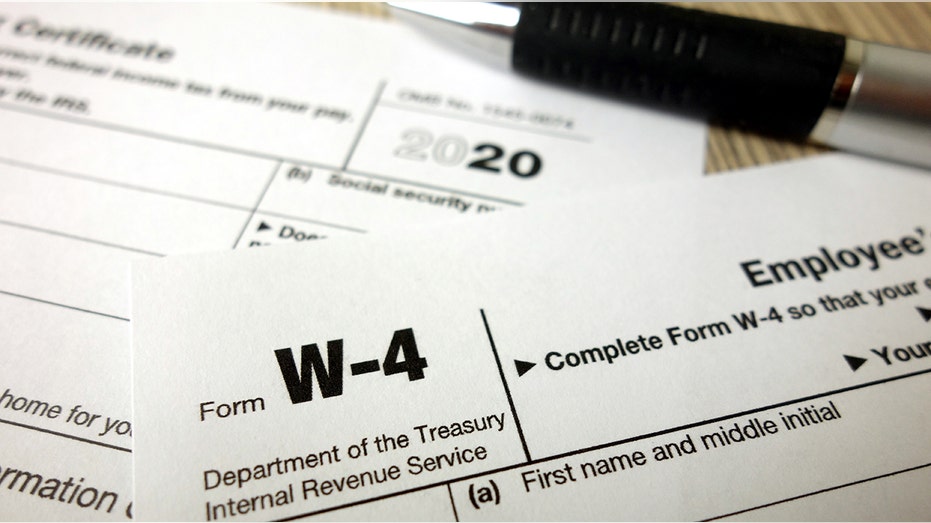IRS begins 2022 tax-filing season with backlog 'crisis' that could delay refunds
Millions of unprocessed tax returns could mean another challenging tax season for filers
Raising taxes will hurt our economy: Sen. Ron Johnson
Wisconsin Sen. Ron Johnson joins ‘Kudlow’ to discuss the current state of economy under the Biden administration as well as the anniversary of the Capitol riot.
The Internal Revenue Service will kick off the 2022 tax-filing season in a state of crisis as it grapples with a backlog of millions of unprocessed returns from one of the "most challenging years" for the agency.
That's according to a new report from National Taxpayer Advocate Erin Collins, who warned that taxpayers could face "even longer delays" for their tax refunds than they did last year as the IRS rushes to address a backlog of returns.
"There is no way to sugarcoat the year 2021 in tax administration: From the perspective of tens of millions of taxpayers, it was horrendous," Collins, who leads the independent watchdog organization within the IRS, wrote in the report. She warned the processing delays could be "as bad, and potentially worse" this year.
IRS TAX-FILING SEASON TO KICK OFF ON JAN. 24
The difficulty this season – which officially begins Jan. 24 – stems from a massive pileup of unprocessed returns accrued during the pandemic: Collins estimated the IRS had a backlog of more than 8.6 million unprocessed individual income tax returns and 2.8 million business returns as of mid-December due to the pandemic and other related disruptions. It also had close to 5 million pieces of unanswered mail.
By comparison, the IRS usually enters the tax-filing season with fewer than 1 million remaining items to address.
There are several reasons for the delays. The IRS was grappling with office closures as well as the herculean task of delivering millions of stimulus checks in 2020 and 2021, all while trying to adapt to major changes to the tax code in the middle of the filing season. The agency is also grossly understaffed; it has 20,000 fewer staff than it did in 2010, and its budget is roughly $11.4 billion – 20% less than it was in 2010, when adjusted for inflation, according to the Congressional Budget Office.

Blank W-4 form and a pen. Tax season
On top of that, more than 20% of the IRS customer service workforce has been unable to work for pandemic-related health reasons over the last two years.
"The IRS is in crisis and needs to apply resources to its core mission – processing returns and paying the corresponding refunds," the report said.
This year could bring about fresh challenges: Taxpayers will have to reflect the monthly child tax credit payments and the stimulus checks they received in 2021 on their returns, further complicating matters and increasing the likelihood of errors and delays in processing returns.
"The unprecedented processing and refund delays taxpayers experienced in 2021 could be as bad, and potentially worse, in 2022 if taxpayers do not file electronically or do not properly reconcile their monthly Advance Child Tax Credit payments or the third stimulus payment with their 2021 returns," Collins said.
Treasury Department officials urged taxpayers to file their tax returns as soon as possible, noting that individuals do not need previous returns in order to submit their 2021 returns. Americans are encouraged to file electronically with direct deposit in order to avoid potential delays and receive their return within 21 days.

The Internal Revenue Service (IRS) headquarters building in Washington on April 13, 2014. (AP Photo/J. David Ake, File / AP Newsroom)
The tax-filing season will end on April 18 this year for most individuals, rather than the usual deadline of April 15, because that's when Emancipation Day will be observed in Washington, D.C.
Taxpayers can request an extension online by filling out Form 4868 using the IRS’ "Free File" tool. You need to submit the form by April 18, or print the form and mail it to the IRS address for your state, making sure it's postmarked by April 18.
GET FOX BUSINESS ON THE GO BY CLICKING HERE
It can give filers more time to thoroughly review their return and take advantage of all the tax benefits, like various deductions and credits, that are available to them to help reduce their liability.
By pushing back the filing date, you can also avoid a failure-to-file penalty – an extra 5% per month on the unpaid amount, which can add up to 25% of the tax due. If you file for an extension, you have until Oct. 15 before the penalty starts accruing.
Experts caution that filing for an extension does not mean you can delay paying the government the taxes that are owed.





















